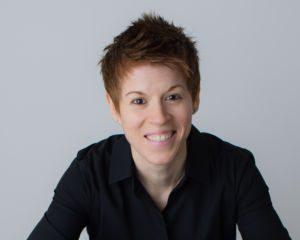Implementing Restorative Practices is about more than sitting in a circle. Successful installation starts with both systems & implementation leaders understanding and planning around the roots of the work, the principles that drive it, and the practices that bring it to life. For implementation to be sustainable over time, however, it must be anchored and aligned to other work taking place and can not exist in a silo. A Multi-Tiered System of Supports (MTSS) framework provides the structures necessary to support the use of data for decision-making, to progress-monitor implementation over time, and to evaluate student and staff outcomes.
This training for building/district leaders will use virtual/interactive activities, tools, and strategies to take participants from the roots and theories behind the work to the data and systems necessary to sustain early stages of implementation.
Restorative Practices Readiness for Leaders Series with Ali Hearn
Time limit: 200 days
22 credits
Full course description
READY TO CREATE A COMPREHENSIVE PLAN FOR IMPLEMENTING RESTORATIVE PRACTICES IN YOUR DISTRICT?
LEARNING OUTCOMES:
- Participants will increase their understanding of:
- The theories/principles behind Restorative Practices
- The continuum of Restorative Practices, the MTSS framework, and the alignment of the two
- The critical features of Circle (and potential applications)
- Participants will increase their sense of community through engaging in authentic connection and experiential learning
- Participants will have the opportunity to begin planning around building capacity of the rest of the staff to ultimately support youth through this work
- Participants will leave with resources necessary to develop a longer-term sustainable plan for successful implementation of foundational Restorative Practices
- Participants will feel more prepared to enter into an official Restorative Practices training knowing what it takes to implement successfully
MEET THE FACILITATOR

ALI HEARN
Ali Hearn, LCSW is a National keynote speaker, trainer, and coach whose mission is to shift mindsets and ignite fires within others to create sustainable change and impact. Throughout her career, she has worked with thousands of educators across the country, emphasizing the importance of improving social/emotional skills, promoting the installation of Restorative Practices within school systems, and reinforcing MTSS frameworks to better support the current needs of students, staff, and families. Ali’s diverse experiences as a school-based social worker first sparked her passion for working with people, and her years working with the Midwest PBIS Network in partnership with the National Center on PBIS, honed her skills in strengthening school systems and culture to positively impact social, emotional, and academic outcomes.
WHAT TO EXPECT
DATE |
TOPIC |
|---|---|
| September 26, 2022 12:00 p.m. – 3:00 p.m. ET |
Session 1: Getting Grounded: Foundational Restorative Practices Creating a sustainable approach to implementing Restorative Practices in schools takes work: implementing practices with fidelity, using data to monitor outcomes, and aligning to other structures and practices that already exist. This session will kick off this 6-part-series by laying the groundwork for where we are headed and why schools would want to go there. |
| October 28, 2022 9:30 a.m. – 12:30 p.m. ET |
Session 2: Restorative Practices: It’s More Than Just a Circle In this session we will take a closer look at the roots and the theories behind Restorative Practices. These critical principles and concepts are the backbone of the work and strengthen the overall implementation of Restorative Practices (especially in schools). |
| November 9, 2022 12:00 p.m. – 3:00 p.m. ET |
Session 3: The Continuum of Restorative Practices: From Proactive to Responsive Eighty percent of the work of Restorative Practices in schools should be spent on the pro-active side of the continuum of supports, helping change the relationships and culture of the school community. Too often schools prioritize starting on the responsive side of the work and are left confused when intended outcomes are not achieved. This session will explore the continuum of Restorative Practices and will help to reiterate the importance of proactive work. |
| January 13, 2023 12:00 p.m. – 3:00 p.m. ET |
Session 4: Circle: We Don’t Have Time Not To Implementing Circle work is powerful and it is an art. The MTSS framework helps us to also consider it in terms of a science. Installing Circles (and other Restorative Practices) effectively into school systems means understanding the critical features of the work, and applying them with fidelity. This session will dig deep into the practice of Circle, the different uses for it, and how to think about measuring implementation fidelity and student/staff outcomes. |
| February 23, 2023 12:00 p.m. – 3:00 p.m. ET |
Session 5: Creating a Culture of Data & Coaching This session will focus on creating data associated with Restorative Practices work. From baseline to outcomes, measuring implementation is critical. This session will provide examples and considerations for data to be used and will allow time for leaders to consider the tools in relation to their own context. |
| April 11, 2023 12:00 p.m. – 3:00 p.m. ET |
Session 6: Putting It All Together: Next Steps This session is the culmination of the 6-part-series and will help connect the dots between all of the sessions to support action planning and next steps. Leaders will leave this series with a greater understanding of Restorative Practices and what it takes to implement district-wide with fidelity, and this last segment of the series will help leaders hone in on next steps towards successful installation. |
WHO SHOULD ATTEND
District and building-level leaders, whom may include: Superintendent/Assistant Superintendent; Building Administrators; Counselor Leaders (Directors of Student Services/Counseling); others serving in leadership roles who influence programs and services provided at the district and school-wide levels

